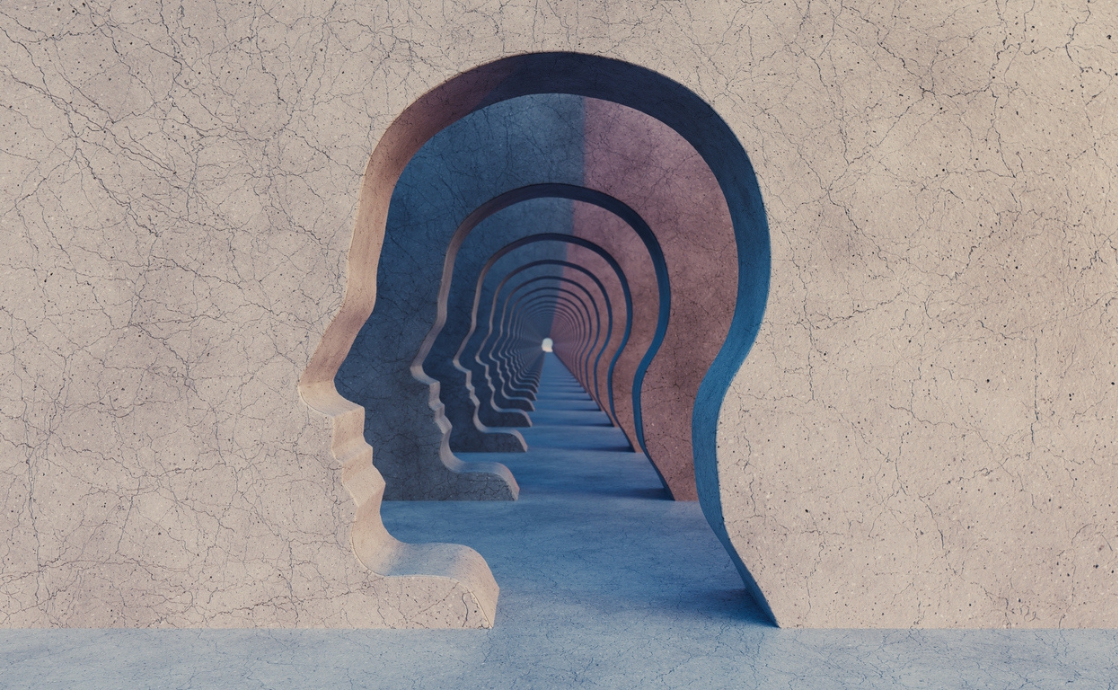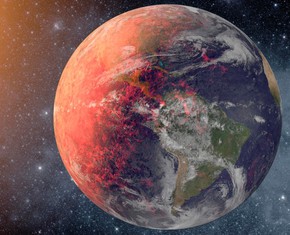The views expressed in our content reflect individual perspectives and do not represent the authoritative views of the Baha'i Faith.
Are you a nihilist or an existentialist? Those philosophies have become dominant concepts in modern thought for more than a hundred years, so to make that decision, let’s first look at their definitions.
A nihilist, the dictionary says, holds “a viewpoint that traditional values and beliefs are unfounded and that existence is senseless and useless, and denies any objective ground of truth and especially of moral truths.” Nihilists contend that the inevitability of death makes all ambition in life pointless. For a nihilist, life has no inherent meaning. The root word, nihil, is Latin for “nothing.”
RELATED: The Meanings of the Middle Way
An existentialist, on the other hand, also believes that life has no inherent meaning — but thinks that we can and should make our own meaning. The dictionary defines an existentialist as “an individual who lives in an unfathomable universe” — and “who must assume ultimate responsibility for acts of free will without any certain knowledge of what is right or wrong or good or bad.” The root word, existent, refers to the fact of human existence and Sartre’s idea that “existence precedes essence.”
Both of these choices sound a bit bleak, don’t they?
That’s because they each base their core philosophical understanding on the simple material fact that we human beings exist. These views say that without any more meaning or purpose than any other organism, like an insect or a single-celled organism, we are the products of random biological chance, which supposedly makes life itself completely meaningless. They restrict human existence solely to this world, maintaining that no Creator exists and that nothing beyond what our physical senses perceive has any reality.
The Baha’i teachings present a very different perspective.
Baha’u’llah, the prophet and founder of the Baha’i Faith, wrote:
Know then that “life” hath a twofold meaning. The first pertaineth to the appearance of man in an elemental body, and is as manifest … as the midday sun. This life cometh to an end with physical death, which is a God-ordained and inescapable reality. That life, however, which is mentioned in the Books of the Prophets and the Chosen Ones of God is the life of knowledge … This is that blessed and everlasting life that perisheth not: whosoever is quickened thereby shall never die, but will endure as long as His Lord and Creator will endure.
Both nihilism and existentialism focus solely on the first of those meanings — that we each have a physical existence in a material world. But they fail to consider the second meaning of life — what the Baha’i teachings describe as “the life of knowledge,” our everlasting spiritual journey in all the worlds of existence:
The first life, which pertaineth to the elemental body, will come to an end, as hath been revealed by God: “Every soul shall taste of death.” But the second life, which ariseth from the knowledge of God, knoweth no death …
Abdu’l-Baha, the son and successor of Baha’u’llah, explained this twofold reality in a letter he wrote in 1921 to the eminent Swiss philosopher, scientist, and psychiatrist Auguste Forel:
The consummation of this limitless universe with all its grandeur and glory hath been man himself, who in this world of being toileth and suffereth for a time, with divers ills and pains, and ultimately disintegrates, leaving no trace and no fruit after him. Were it so, there is no doubt that this infinite universe with all its perfections has ended in sham and delusion with no result, no fruit, no permanence and no effect. It would be utterly without meaning.
RELATED: Neoplatonism, the Trinity, and How Baha’is View God’s Prophets
In those two sentences, Abdu’l-Baha’s letter to Dr. Forel accurately summarizes nihilism, as championed during the late 19th century by the German philosopher Friedrich Nietzsche. But then it goes on to say that the great ancient philosophers like Socrates and Plato were:
… convinced that such is not the case, that this Great Workshop with all its power, its bewildering magnificence and endless perfections, cannot eventually come to naught.
He then set forth the Baha’i philosophy to Dr. Forel:
That still another life should exist is thus certain, and, just as the vegetable kingdom is unaware of the world of man, so we, too, know not of the Great Life hereafter that followeth the life of man here below. Our non-comprehension of that life, however, is no proof of its non-existence. The mineral world, for instance, is utterly unaware of the world of man and cannot comprehend it, but the ignorance of a thing is no proof of its non-existence. Numerous and conclusive proofs exist that go to show that this infinite world cannot end with this human life.
In an earlier letter to a Baha’i, Abdu’l-Baha asked an important rhetorical question and answered it as he explained this hopeful Baha’i vision:
When thou lookest about thee with a perceptive eye, thou wilt note that on this dusty earth all humankind are suffering. Here no man is at rest as a reward for what he hath performed in former lives; nor is there anyone so blissful as seemingly to pluck the fruit of bygone anguish. And if a human life, with its spiritual being, were limited to this earthly span, then what would be the harvest of creation? Indeed, what would be the effects and the outcomes of Divinity Itself? Were such a notion true, then all created things, all contingent realities, and this whole world of being — all would be meaningless. God forbid that one should hold to such a fiction and gross error.
For just as the effects and the fruitage of the uterine life are not to be found in that dark and narrow place, and only when the child is transferred to this wide earth do the benefits and uses of growth and development in that previous world become revealed — so likewise reward and punishment, heaven and hell, requital and retribution for actions done in this present life, will stand revealed in that other world beyond. And just as, if human life in the womb were limited to that uterine world, existence there would be nonsensical, irrelevant — so too if the life of this world, the deeds here done and their fruitage, did not come forth in the world beyond, the whole process would be irrational and foolish.
We must die, the Baha’i teachings say, to reach those eternal rewards. That inescapable fact gives our lives profound meaning.
















Comments
Sign in or create an account
Continue with Googleor